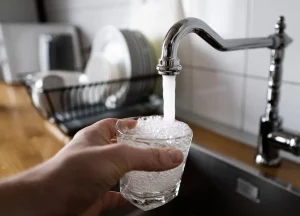The risk of developing heart failure could be increased by not drinking enough water
According to the study, when fluid intake is reduced and serum sodium concentrations rise, the body attempts conservation of water. This activates processes that contribute to heart failure.
It doesn’t necessarily mean the heart is failing or about to stop functioning. This is when the heart muscle becomes weaker or suffers from a mechanical problem that limits its ability to pump blood. The heart cannot keep up with the demands of the body and the blood returns to it faster than it can pump. This causes the heart to become congested. This problem in pumping means that oxygen-rich blood cannot reach other organs.
What amount of water should you drink each day to reduce your risk of heart failure?
It doesn’t matter if you are middle-aged or older, drinking enough water daily is important for your health and many other benefits.
Keep in mind that water is constantly being lost by our bodies throughout the day. This is mainly due to sweat, urine, and other body functions such as breathing. You need to drink enough water each day to maintain a healthy heart. How much water should you drink?
There are many opinions about how much water you should drink each day to stay hydrated. Ask any doctor and they will tell you to drink eight 8-ounce cups of water (or approximately two liters, half a gallon) per day. Studies show that you don’t have to drink eight cups of water per day. Your diet, gender, metabolism, weight and activity level will all impact your daily water intake.
Athletes, those who are active regularly, pregnant or nursing women, and people with a fever are all good candidates for drinking more water. According to the Mayo Clinic however, adults should consume 15.5 cups of water per day while adult women should drink 11.5 cups. This depends on the factors mentioned.











